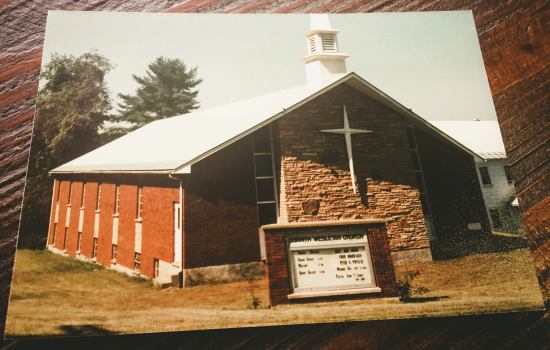Copyright © TMS Global
TMS Global
PO Box 936559
Atlanta, GA 31193-6559
800.478.8963
Our EIN number or Taxpayer Identification Number is 58-1546441.

As a church leader, researcher, and consultant, I am privileged to help a variety of churches build capacity and expand their mission outreach. I’ve met many Jesus-followers whose language of love is compassionate service. Still, something as huge as the refugee crisis immobilizes most congregations and individuals.
But it doesn’t have to be that way! Here I share the story about how my home church served a refugee family in hopes that more churches are activated and equipped to do the same.
The pastor’s vision
In December 1978, during the Indochina Refugee Crisis, God moved on the heart of our pastor, the Rev. Richard Bennett, to lead our church, The Corinth Wesleyan Church, of Corinth, New York, to adopt and resettle a displaced family living in Vietnam.
When Corinth church members decided to welcome strangers, they didn’t expect them to arrive a few days before Christmas. But the church took it in stride. “It was the peak of the boat crisis. It happened quickly, and our family had to adjust our plans for Christmas. It was stressful but exciting,” explains the Rev. Bennett.
Like Mary, Joseph, and baby Jesus, no room could be found for the refugee family on such short notice. So Pastor Bennett, his wife, and their five children housed the family in their small parsonage for Christmas through late winter the following year, 1979. “This was a courageous step of faith for our church, and for the Bennetts—to open an already bursting home to four more people,” shares Sharon Miller, an active member of the church. Joining Jesus sometimes requires faith to step out on a limb.
The community’s response
Instead of standing in opposition or living in fear, the church and surrounding community rallied behind Pastor Bennett’s vision, supplying food and clothing in those early days. “There wasn’t a lot of opposition. I don’t remember any. This family became our friends. We loved them,” shares Mrs. Carol Ralph, a member of the church, who also purchased Christmas gifts for the family. A vacant home on Eggleston Street owned by a church family eventually opened so the newcomers to town had a place to live. Church folks and community folks united to furnish the house. A local employer provided a full-time job for the father. The church members encountered many challenges to communicating with their Vietnamese-speaking newcomers. Fortunately, the congregants were able to partner with a representative of World Relief living nearby who was fluent in Vietnamese and served as an interpreter for the family. It wasn’t long until the children learned enough English to interpret for their parents. “They were well accepted into our community as a whole, and in the schools,” shares Sharon Miller. “The community went out of their way and the family settled into Corinth.” The new family even began entertaining church families for meals at their home.
The church held a deep spiritual burden for the family. The family attended church regularly and participated in the life of the church as they were able. The parents’ inability to speak or comprehend English continued to be a barrier, but the church continued to love them. Some in the church had faith in the God of Acts 2 at the day of Pentecost, trusting that when the message of Jesus’ love would be proclaimed in the power of the Spirit, the new family would understand it in their own language. Carol Ralph explains, “We prayed, ‘God speak to them in their own language so they understand what Pastor Bennett is saying.’ And we knew, if nothing else, they understood the language of love.”
What we learned
Churches today who desire to reach out to refugees can learn from my home church:
I celebrate that my church took a risk and adopted this family. The church likely didn’t do everything right, but no manual or playbook existed to prepare them for this pioneering effort. After several years in Corinth, the Vietnamese family relocated to the city of Philadelphia. Even though the church eventually lost contact with this family, the church families are forever grateful for the opportunity to have shared Christ’s love and to have been a beacon of hope to this needy family.
Duane Brown is The Mission Society’s senior director of church ministry. For 12 years, he served as a church pastor and holds a Ph.D. in Intercultural Studies from Asbury Theological Seminary.